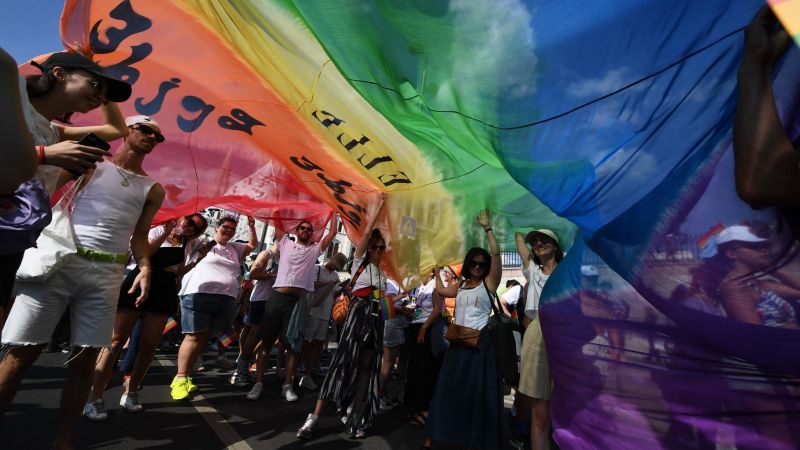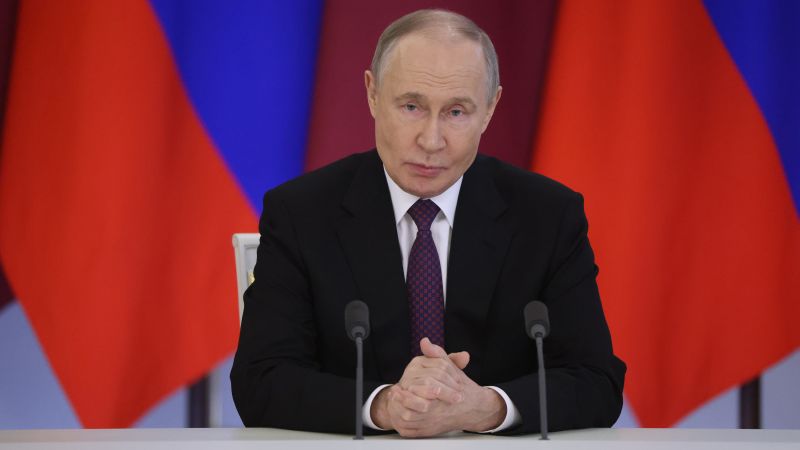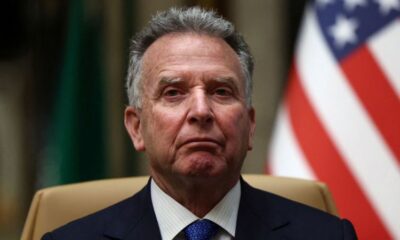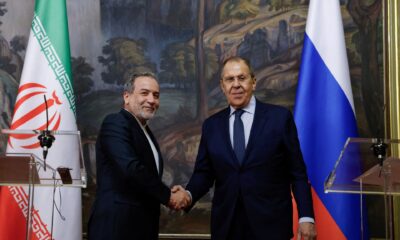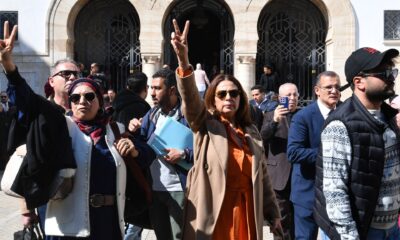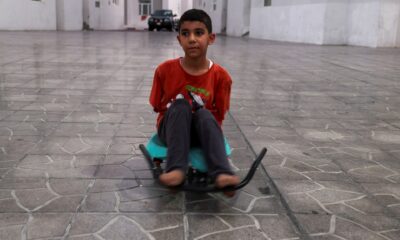CNN
—
Robert Antic has never been to Hungary’s annual Budapest Pride, due to mark its 30-year anniversary this summer. But now, the 37-year-old content creator who is representing Hungary at this year’s “Mr. Gay Europe” wants to join the festivities for the first time – and the timing is no coincidence.
Hungarian lawmakers on Tuesday passed a new law which bans Pride events in the country and allows authorities to use facial recognition technology to identify those attending any events that go ahead despite the ban – something campaigners say is illegal and part of a wider crackdown on the LGBTQ+ community.
Hungarian Prime Minister Viktor Orban welcomed the ban, which he said would outlaw gatherings that “violate child protection laws.”
“We won’t let woke ideology endanger our kids,” he posted on X on Tuesday.
The move sparked lively protests in Budapest earlier this week, with organizers of the city’s Pride vowing to continue with the annual festival despite the new law and declaring: “We will fight this new fascist ban.”
A spokesperson for Budapest’s mayor, Gergely Karácsony, told CNN that he would work with organizers to find “a solution to hold the event again this year,” branding the new law “an attack on the right to assembly.”
For Antic, who describes himself as a “proud gay man,” the ban is a violation of his right to express himself.
“The new laws make it difficult to imagine a positive future for LGBTQ+ people in Hungary,” he told CNN. “The legal environment feels more restrictive, and it’s worrying to think about what lies ahead.”
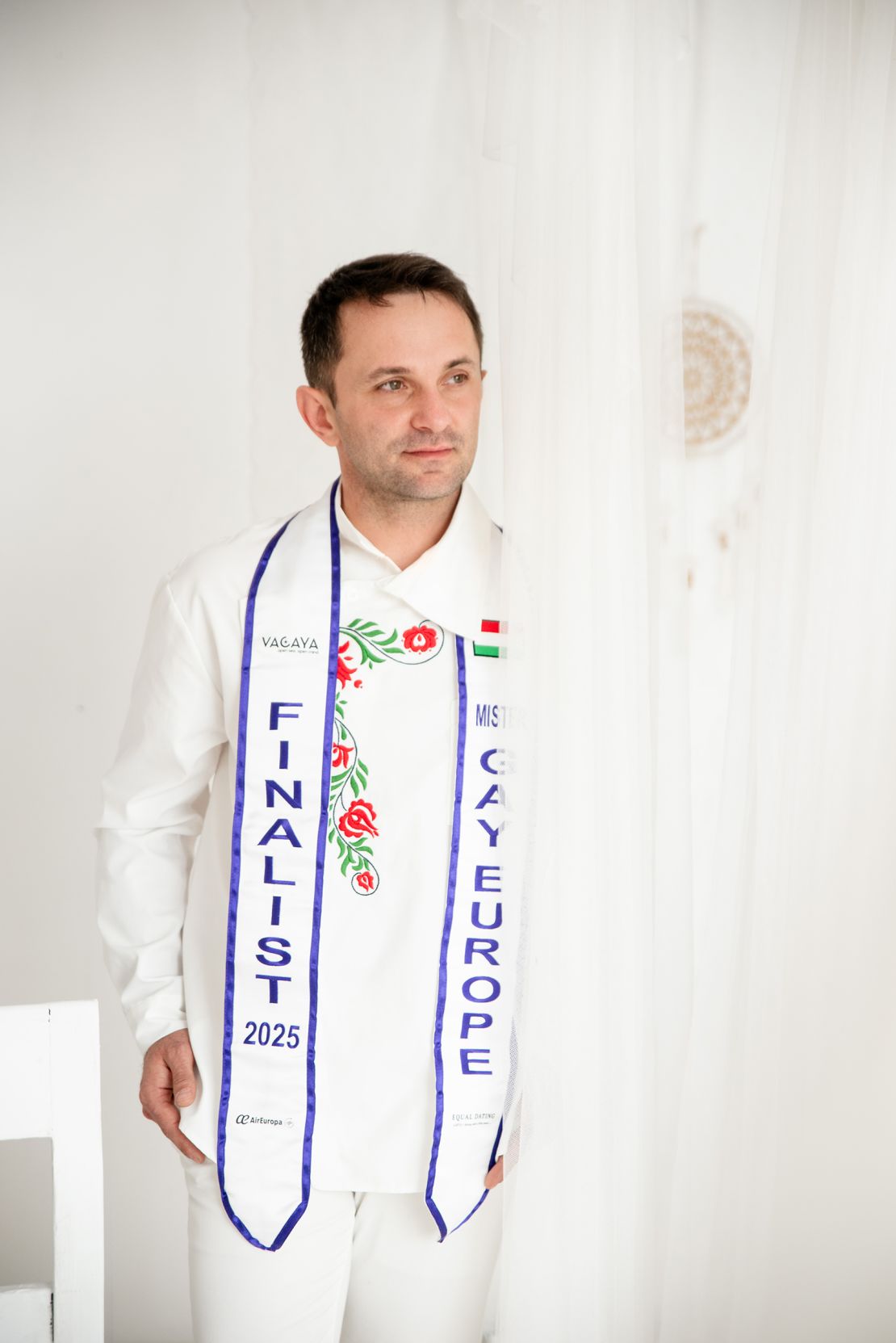
Despite the fears that the new law brings, Antic said he still considers Pride a “fundamental event” for the community.
“No matter the challenges or restrictions, it’s important for people to come together and celebrate who they are,” he said. “I believe change is possible.”
The Hungarian government, led by Orban’s nationalist-populist party, regularly stands at odds with the rest of the European Union despite being a member.
Earlier this month, Hungary, the only EU member state opposing Ukraine from joining, refused to sign a statement of support for Kyiv that was agreed to by all other countries within the union. Orban is also a close ally of US President Donald Trump, with the two sharing both an ideology and political approach.
Orban’s party has been enacting anti-LGBTQ+ legislation for several years now, often under the guise of so-called “child-protection.”
In 2020, the country effectively barred same-sex adoption, with Orban’s office saying at the time that the move strengthened “the protection of Hungarian families and the safety of our children.”
A year later, the country banned the distribution of content related to homosexuality or gender change to under 18s, something the European Commission said violated “a number of EU rules.”
Simon Bird, a 68-year-old retired teacher who moved to Budapest in 2016, told CNN that the Pride ban has made him feel “unseen and actively disliked.”
As a self-described queer person, he has attended every Pride event held in Budapest since he arrived.

Though the new law made him momentarily question whether his move to the city had been the right decision, he decided that his presence, along with other members of the LGBTQ+ community, is “now more important than ever.”
“It makes me want to be more obvious (as a queer person),” he said.
For June, a 24-year-old non-binary, bisexual teacher and tattoo artist who did not want to share their last name for privacy reasons, Hungary is a challenging place to be openly LGBTQ+.
“People just don’t get me, my piercings, (or) my colorful hair,” they told CNN. “There’s so little going on (in Hungary) – such little pride, such little confidence, such little faith. It’s quite rare to find explicitly queer events.”
In an effort to create more spaces for LGBTQ+ people in Budapest to meet, June has for the past two years held an event called Queer Picnic on the city’s central Margaret Island.
Some 70 people showed up to the first picnic after June advertised it on social media, with dozens showing up the following year.
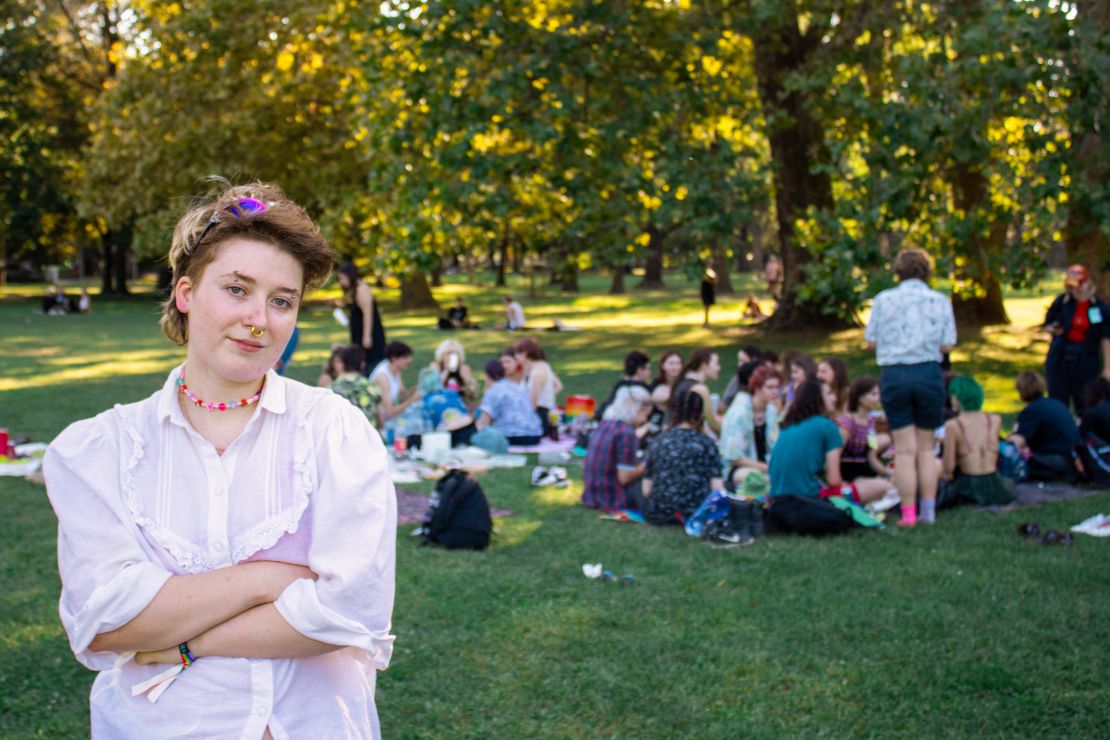
Despite the escalating clampdown, June said that they would organize another event this year, despite the ban on LGBTQ+ gatherings. “Queer Picnic for now will be a really great solace for people during these times,” they said.
“People want to feel normal – that’s all we want. We just want to feel normal,” they added. “It’s the government that keeps inventing new laws to further segregate us.”
As members of the LGBTQ+ community are vowing to defy Hungary’s new law, politicians and non-governmental organizations around the world are speaking out against it too.
“This government wants to turn the clock back by decades and drag the country back to a much darker past,” a cross-party group of European Parliament members declared on Wednesday.
Neela Ghoshal, senior director of Law, Policy and Research at LGBTQ+ charity Outright International, told CNN that Hungary’s “patently illegal maneuver to ban Pride flies in the face of its human rights obligations.”
Ghoshal said the law’s reliance on “the worn-out claim that it is protecting children by criminalizing LGBTIQ people and their allies is a blatant ploy to misuse children for political gain.”
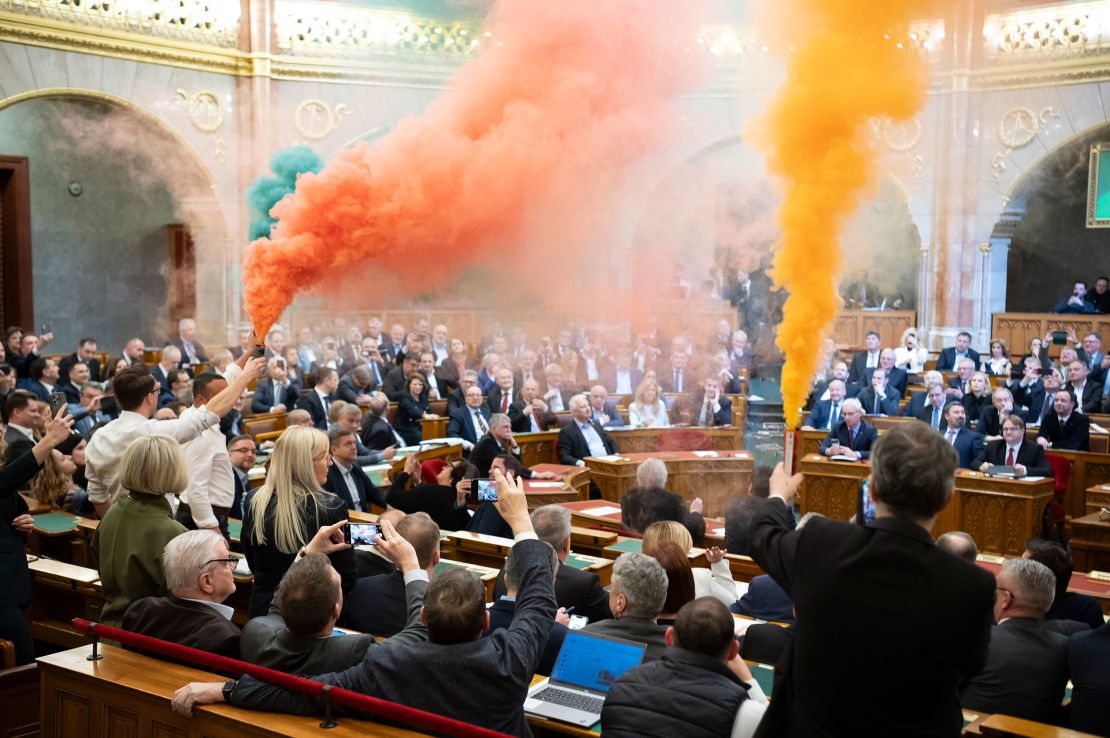
Despite criticism from human rights groups and opposing legislators – some of whom let off smoke flares in Hungary’s parliament on Tuesday – the law was passed in a 136-27 vote, with support from Orban’s party and their minority coalition partner the Christian Democrats.
Orban may be trying to appeal to right-wing voters – Hungary’s opposition party, Tisza, leads Orban’s Fidesz in polls, according to Reuters, a year before elections in the country.
Meanwhile, other critics have homed in on the government’s planned use of facial recognition tools to police the ban.
Anna Bacciarelli, a senior researcher at Human Rights Watch, said that Hungary is subject to the European Union’s AI Act, which, she says, “explicitly prohibits the use of facial recognition in public spaces unless there is justification on national security grounds and when it is subject to judicial oversight.”
Bacciarelli told CNN that “adding Pride attendees to a government database for further profiling and surveillance is an incredibly worrying move that is clearly incompatible with human rights.”
Another danger of facial recognition technology is that it has been shown to misidentify people, particularly those from minority groups, according to Serhat Ozturk, a legal officer at UK-based nonprofit Privacy International.
Ozturk told CNN that the use of facial recognition technology in public spaces is a “highly intrusive level of surveillance.”
June, the non-binary tattoo artist, said the threat of facial recognition being used if this year’s Pride goes ahead initially scared them, but as they heard more people say that they would go anyway in defiance of the law, it “lit a flame” within them.
“I’m realizing that these are all tactics to silence us,” June said. “And if that is their goal, then we must continue. We have to continue fighting. That is all that we can do.”

